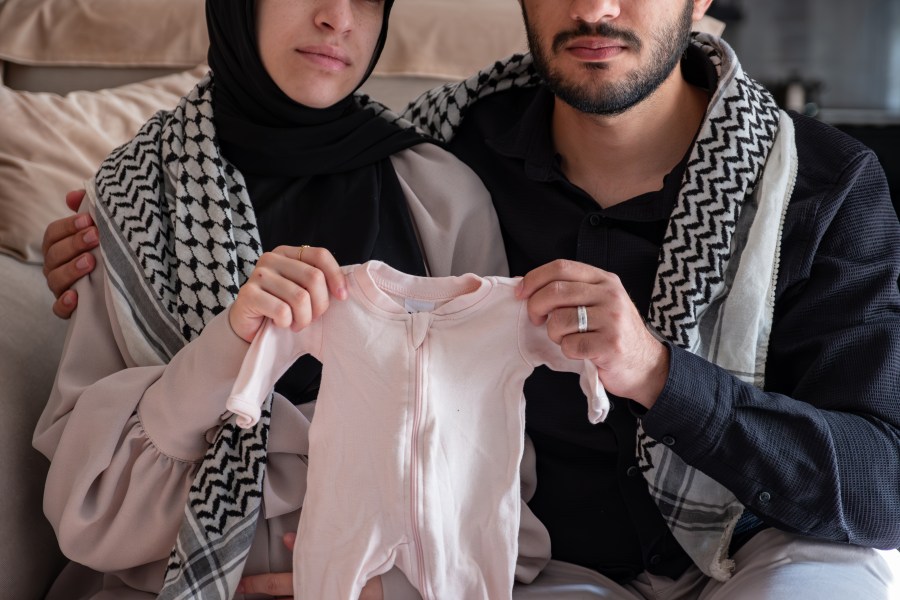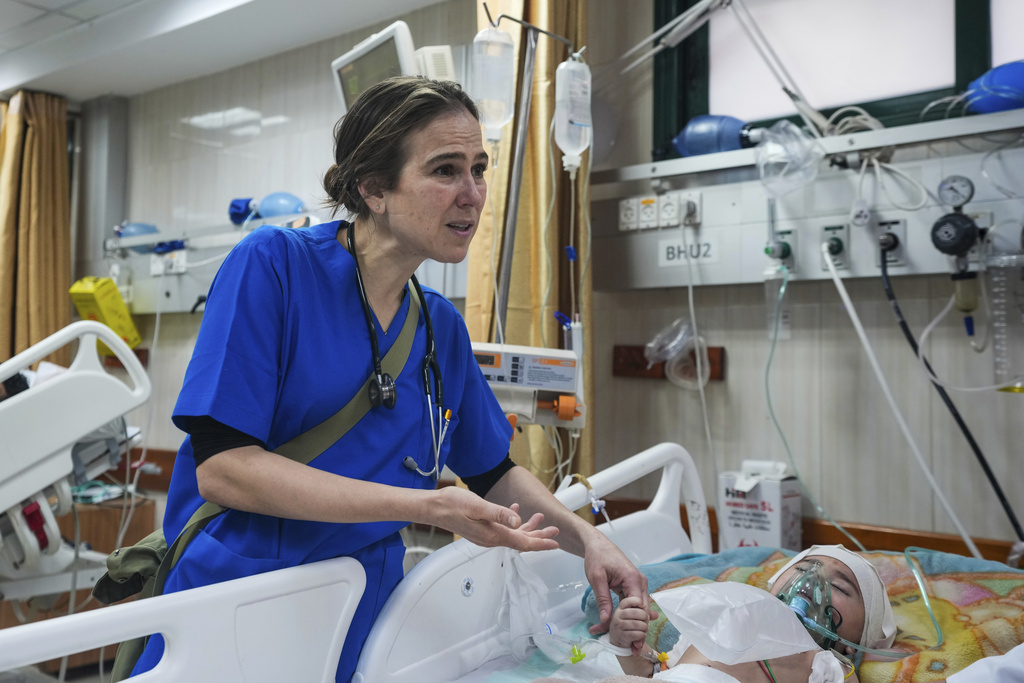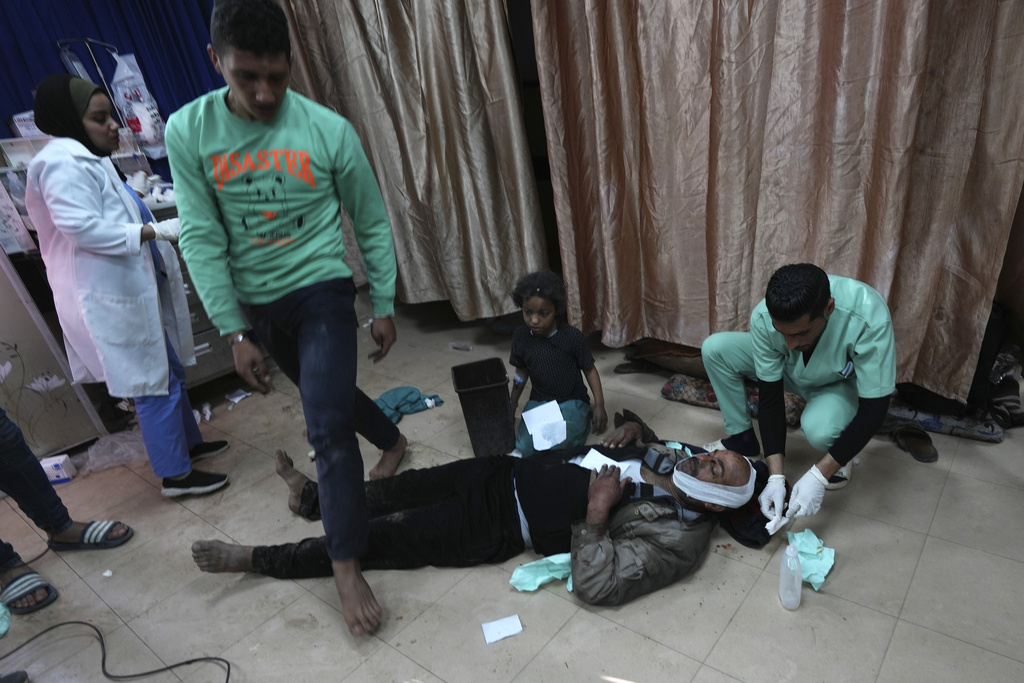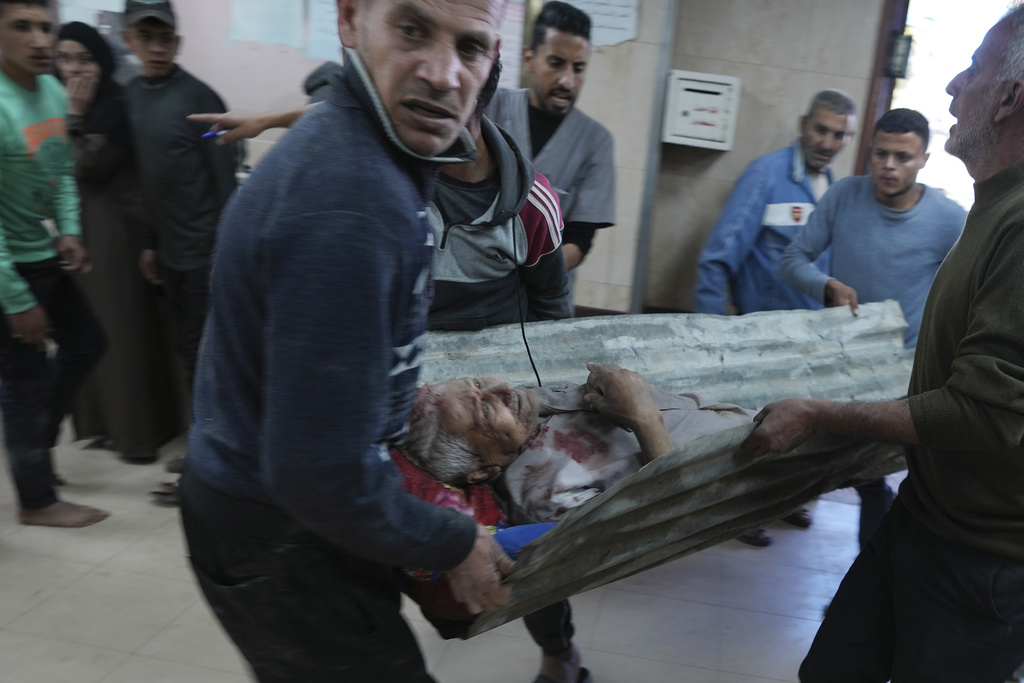(NewsNation) —The brutal death toll in Gaza continues to rise, but some of the youngest victims are being buried without any record of their birth, which may keep them from ever even being counted as casualties of war.
Doctors and volunteers at humanitarian organizations working in the besieged Strip say some newborn babies are dying without any formal registration of their birth due to the chaos and relentless violence in Gaza.
Ahmed, a doctor working at Al-Helal Al-Emirati Hospital in Rafah, told NewsNation in a translated message that babies delivered stillborn or those placed in a neonatal intensive care unit are no longer assigned a name.
He asked NewsNation to refer to him only by his first name due to the nature of the conflict.
Ahmed said the spread of bacteria is also causing newborn babies to die from sepsis — often caused by bacterial infections. Shortages in cleaning supplies and sanitation services are causing unsanitary environments for these newly born vulnerable babies, he said.
More than 32,000 Palestinians have been killed since the Oct. 7 Hamas attack, according to the Hamas-controlled Gaza Health Ministry, which touched off the bloodiest escalation the region has ever seen.
After more than six months more than 13,800 children have reportedly been killed, thousands have been injured and thousands more are on the brink of famine, according to the Palestinian Ministry of Health.
This count does not capture the full magnitude of deaths, say those working in war-torn Palestine, as some of the dead lost their lives before even being counted in life.
‘They came to life and left without anything’
Hiba Tibi, a country director for the aid organization CARE, told NewsNation that maternal health workers have confirmed that in some cases newborn babies are dying without record.
“Babies are born and dying before even getting registered, so they are not even counted in life,” she said. “Some of these are lives that are not even registered, they came to life and left without anything.”
As bombings and now famine are a daily reality, recording deaths — which are occurring by the minute — has become difficult for the remaining workers in Gaza who are tending to more immediate needs.
Tibi said due to a lack of medical supplies, doctors, vaccines, and other basic beginning-of-life care, giving birth is the “worst thing that can happen to a mother and a child” now because they are losing their lives from “preventable causes.”
Will these babies ever be counted?
Without birth records, these babies may be forever lost, unknown, and uncounted when it comes to time to investigate official death tolls, Taylor Seybolt, an associate professor of international affairs and director of the Ford Institute for Human Security at the University of Pittsburgh, said.
After wars, human rights organizations or government entities undertake years-long efforts to record deaths, but for Gaza, this will be even more difficult due to the massive physical destruction that has taken place, he said.
Seybolt said that part of the process of counting deaths is utilizing birth records so without them it’s almost impossible to count these children.
“Even if there is a serious effort to account for everybody, it’s unlikely that it’ll be successful,” he said, adding that it will be incredibly challenging to get an accurate tally for these unrecorded babies.
“It’s important and incredibly hard to create records and it has to be done by an organization that is respected by outsiders,” he said. “It takes a long time, and we can’t expect to ever get an absolute right number.”
The long-felt loss of these unrecorded babies
Jennifer Dabis, a senior policy manager at Juzoor for Health and Social Development, a social services organization in Gaza, told NewsNation that while Palestinians are a “resilient people” the gravity of these losses will remain forever.
“There’s going to be a huge impact on these mothers, their brothers and sisters and the whole society in general because there is not even one family in Gaza that hasn’t lost someone,” she said.
These babies did not even have a chance at life, she said.
One day those families will look back and tell the world about these children who had no names or records of their existence, “but right now they are too busy thinking about whether they will survive,” Dabis said.
“Maybe then the world’s going to start thinking about what happened and how would they feel if something like that happened to them and their children.”
For of NewsNation’s complete coverage of the war in Gaza, click here.













